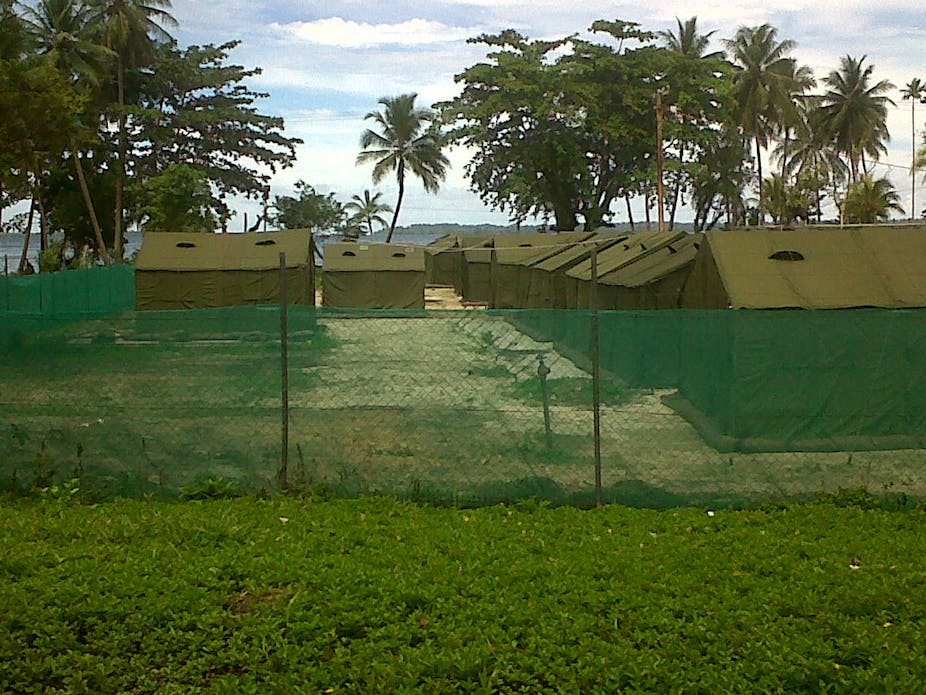ABC’s Life Matters recently treated its listeners to something quite rare: a discussion of the economic assumptions implicit in the discourse surrounding boat people.
Sociologist Andrew Jakubowicz, who had outlined his views on The Conversation the day before, pried the discussion open to reveal some startling facts about how the problem has been conceived at a national level. He outlined how a specific vocabulary, combined with knee-jerk style policies, has contributed to a convincing economic mythology.
When we employ such terms as “business model”, and argue that the stated aim of border protection policy is to “dismantle” that model, making the “product” less “attractive” and thereby undermining people smugglers’ source of “profit”, we are complicit in placing this issue within an unusually specific, economically inspired framework.
Jakubowicz draws attention to other features of the discussion that bear decisively economic imprints. He argues that we have perhaps unwittingly applied rational choice theory to our understanding of boat people, their problems and their behaviour.
That is to say, we’ve assumed they are rational agents making decisions in contexts of limited resources and information. I agree with his identification of the economic dimension that pervades here, but I think precisely the opposite argument is true.
In fact, the very analysis you’d expect of boat people from neo-liberal, market-minded and even market-friendly Labor governments (the analysis Jakubowicz alleges has been sanctioned in the national debate) is the one we haven’t had.
If we had really assumed that boat people were rational actors, deciding after appropriate cost-benefit analysis to get on a leaky vessel headed to Australia via the Indian Ocean, we would have respected their autonomy in engaging that calculus, and conceded that they acted in a rational manner given the information they had at their disposal (economic privation, war, persecution, and so on).
As it turns out, however, we haven’t made any such concession. Instead we’ve assumed a paternalistic posture that says, “You’re not rationally acting in your best interests, you don’t know what’s good for you, we’re going to make it as tough as possible for you to get on that leaky vessel, and it’s for your own good. We simply can’t bear the thought of any more of you dying at sea.”
This is an inversion of the rational choice expectation.
There have, of course, been dead giveaway signs in this debate, obvious to anyone who recalls its basic history, that such economic verbiage is a smokescreen for far deeper motivations than a concern to drive people smugglers out of business.
We need only recall the infamous cry of John Howard soon after the Tampa affair – “we will decide who comes to this country, and the circumstances in which they come” – to realise that the debate never had much to do with concern for business models, or the unscrupulous profiteering of people smugglers who take advantage of people’s desperation by selling a life-threatening product.
The undertone of indignation that Australia’s sovereignty was being somehow infringed has not ceased to ring from Howard’s words through the variously worded formulations of the problem these past 11 years. Tony Abbott’s references to the supposedly exploited generosity of the Australian people tap into that reserve of indignation.
And yet at the same time the nation as a whole has slipped into a new form of self-delusion that needs to be recognised. We tell ourselves we’re trying to stop deaths at sea because it makes us feel better about our punitive policies.
But the sad fact is, we haven’t done much more than change our language.

